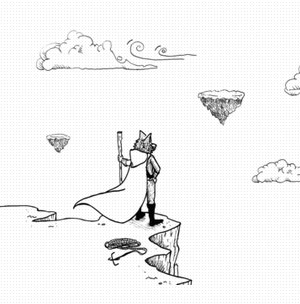Globally, scientists have taken varied approaches in their bid to produce antibodies to fight AIDS. One here in Australia is, literally, betting on the farm.
Researchers at the University of Melbourne, supported by Immuron Ltd. (ASX: IMC), focused on the humble cow. The farm animal enjoys a legendary ability to protect itself and its calves. What’s more, the cows, unlike humans, apparently cannot contract HIV at all. But the scientists believed the cows’ powerful immune systems might still respond to foreign protein by developing antibodies that cold be used to develop anti-AIDS products.
To test their hypothesis, Melbourne University’s Dr. Marit Kramski and her colleagues vaccinated pregnant cows with an HIV protein, expecting the animals to respond by producing even more antibodies than they traditionally do before giving birth. When they studied the first milk that cows produced after giving birth they were spot-on
The first milk, called the colostrum, is generally packed with antibodies to protect the newborn calf from infections. But the vaccinated cows did more. They also produced HIV antibodies in their milk.
“We were able to harvest antibodies specific to the HIV surface protein from the milk,” said Kramski, a winner of the Fresh Science national program for early-career scientists.
“We have tested these antibodies and found in our laboratory experiments that they bind to HIV and that this inhibits the virus from infecting and entering human cells,” she said.
What next?
Immuron, which specialises in oral immunotherapy for humans using dairy-derived antibody products, plans to use the cows’ antibodies to develop a vaginal cream for women that can protect them from contracting HIV. Many microbicides – typically applied into the vagina before and/or after sex to trigger protection for women – are being developed around the world. But the Melbourne researchers expect their cream to be both easier and cheaper to produce – a cow could yield as much as a kilogram of antibodies, or 2.2 pounds, a huge volume for microbes.
“We hope that our anti-HIV milk antibodies will provide a user-friendly, female-controlled, safe and effective tool for the prevention of sexually acquired HIV infection,” said Kramski.
“If proven effective in humans, it will empower women to protect themselves against HIV,” she added.
Kramski’s research was supported by the Australian Centre for HIV and Hepatitis Virology Research, and the NHMRC. She and her colleagues are now developing plans for animal and human studies.






![How to build a retail empire with James Webber [FREE REPORT]](https://anthillonline.com/wp-content/uploads/2015/06/james-webber-instagram-memes-01-300x194.jpg)
![The Top 5 Most Insanely Dumb Mistakes made by Rookie and Seasoned LinkedIn Users, with David Hobson [FREE REPORT]](https://anthillonline.com/wp-content/uploads/2015/07/Screen-Shot-2015-11-26-at-14.29.18-100x75.png)
![Four Page Digital Marketing Strategy [FREE RESOURCE]](https://anthillonline.com/wp-content/uploads/2015/01/FOUR-PAGE-IMAGE-100x75.png)
![How To Grow Your Business and Profits with Jason Cunningham [CHEAT SHEET]](https://anthillonline.com/wp-content/uploads/2015/07/Cunningham-100x75.png)
![How did Sean Clark build a $300 million turnover company from a $500 AdWords investment? [CHEAT SHEET]](https://anthillonline.com/wp-content/uploads/2016/03/SEAN-CLARK-cheatsheet-NSFU-02.pdf-Box-2016-03-16-14-43-21-100x75.png)
![Networking is for suckers… master Inbound Marketing [FREE REPORT]](https://anthillonline.com/wp-content/uploads/2015/03/inboundreloaded-100x75.png)


![Why even big businesses should be lean start ups [VIDEO]](https://anthillonline.com/wp-content/uploads/2012/10/LeanBigCompany-300x350.jpg)

![It’s so hard to find good technical talent these days. [VIDEO] HTML wizard at Vooza](https://anthillonline.com/wp-content/uploads/2013/03/HTMLWizard-300x350.jpg)
![THE ULTIMATE CASHFLOW CHECKLIST [FREE DOWNLOAD]](https://anthillonline.com/wp-content/uploads/2016/06/james-Seven-simple-strategies-to-cut-costs-04.pdf-Box-2016-06-30-13-49-35-300x194.png)

![The Alchemy of Negotiation with Matt Lohmeyer [FREE REPORT]](https://anthillonline.com/wp-content/uploads/2015/07/Capture-100x75.jpg)
![Learn how to use Instagram as a business tool [FREE INFOGRAPHIC]](https://anthillonline.com/wp-content/uploads/2012/12/nickelbackinstagram-100x75.jpg)
![How to expand into New Markets with Elsita Meyer-Brandt [CHEAT SHEET]](https://anthillonline.com/wp-content/uploads/2015/07/Screen-Shot-2015-11-26-at-15.52.30-100x75.png)
![New Zealand’s Xero eyes US IPO, further disruption as subscribers increase [INFOGRAPHIC]](https://anthillonline.com/wp-content/uploads/2014/07/sruuuuujana-212x194.png)
![Ever wonder if your ‘content marketing’ is really just crap? You gotta see this! [INFOGRAPHIC]](https://anthillonline.com/wp-content/uploads/2014/08/content-100x75.jpg)
![7 Business Lessons From Game of Thrones [INFOGRAPHIC]](https://anthillonline.com/wp-content/uploads/2014/10/infographic-games-of-thrones-041-100x75.jpg)
![How to build your own Media Empire… In seven steps with Nathan Chan [INFOGRAPHIC]](https://anthillonline.com/wp-content/uploads/2014/10/Nathan-Chan-Infographic-e1413419529176-100x75.jpg)
![5 Business Lessons From Tinder [INFOGRAPHIC]](https://anthillonline.com/wp-content/uploads/2014/10/Tinder-Elegant-Infographic-100x75.jpg)



